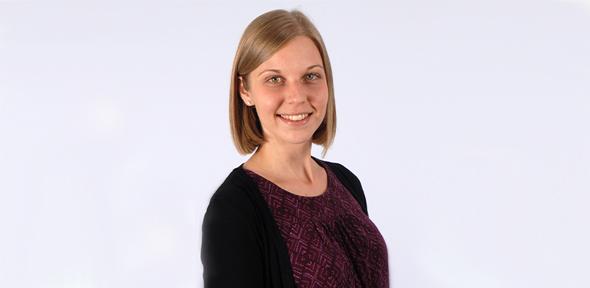
Submitted by Richard Arlett on Fri, 25/10/2024 - 16:45
Dr Emma James is a Lecturer in the Department of Psychology at the University of York. Her research focuses on the fundamental processes of how both children and adults learn, drawing upon memory, language and literacy research.
She investigates key questions such as: How do we learn and retain new words? How do these processes change across development? How does limited language knowledge affect reading and educational success? And how do learning difficulties influence broader life outcomes and wellbeing?
To address these questions, Emma uses behavioural experiments that train and test new words, as well as analyses of real-world data and national cohort datasets.
What is the main aim of your research (in this context) and what key questions or issues does it address?
The main aim of my research is to understand how learning changes across development. There are many factors that affect successful learning and long-term storage of new information in memory, such as the amount of related knowledge we have or the quality of sleep. These factors themselves change from childhood to adulthood, so my research aims to unpack the implications for how we learn at different stages of our lives.
What does your research involve you actually doing on a daily basis, and where do you typically carry out your work?
Most of my studies involve teaching people new words, and seeing how well they remember them at later tests. We work with some fantastic schools in and around York who let us visit to run these experimental tasks with children. Depending on the study, we might work one-on-one with children on computerised tasks outside the classroom, or teach and test new words as a whole class. This can be an interesting challenge to mirror in adult participants: sometimes they can complete the tasks independently online, but other times we bring whole groups into the department to run similar “whole-class” activities!
What outcomes or contributions do you hope your research will lead to in the future?
By understanding how learning changes with development, I hope that we can better tailor learning opportunities for different learners. Time in the classroom feels increasingly squeezed, and so it’s important that teaching and revision schedules are optimally efficient for different groups of pupils. Advances in educational technology are also making tailored approaches more feasible to implement on an individual basis.
What aspect of your work is most exciting to you right now?
I’m really excited to tackle how learning changes over adolescence. We know that there are key differences between children and adults, but we’ve never really asked what happens over the intervening period. This gap is quite striking considering that adolescence is such a significant period of brain development.
How does this year’s symposium theme, “How can learning a second language be made effortless?”, relate to your research?
On the theme of ‘How can learning a second language be made effortless?’, my research speaks to the ease at which children seem to absorb new vocabulary. I ask these questions from a memory systems perspective, but I think there are many reasons why children’s learning can appear effortless. I’m really looking forward to expanding these ideas at the symposium.
